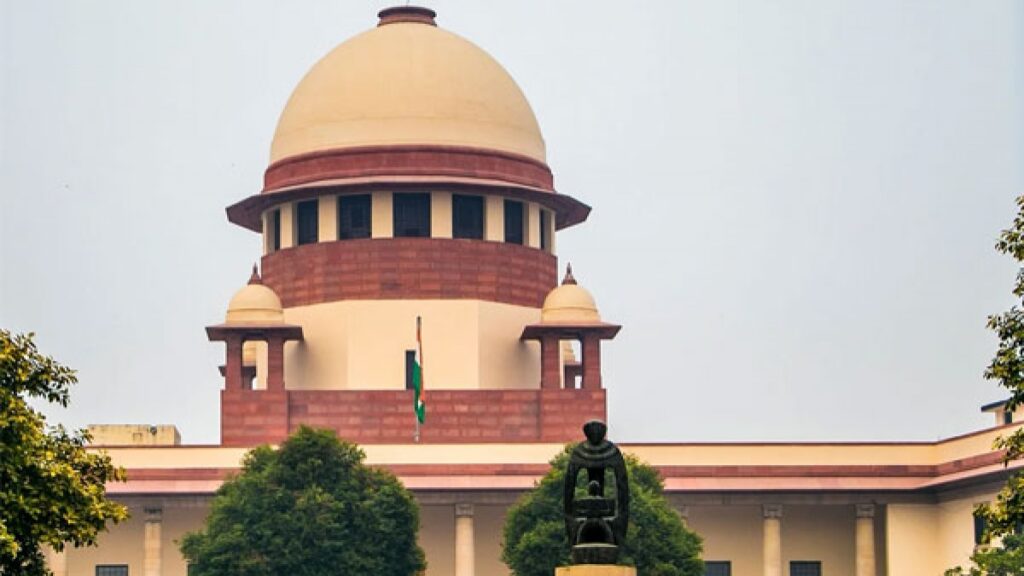Nithyakalyani Narayanan. V
The Supreme Court ruled on February 20th that a judge other than the one who had granted the accused’s bail could not hear a motion to revoke it. Justices B.R. Gavai and Sandeep Mehta made up the bench that rendered this decision, calling the act in question egregious impropriety.
The bench was considering a petition challenging an order issued by a lone judge of the Madhya Pradesh High Court in Gwalior on December 12, 2023, which revoked the bail that had been granted to two defendants.
The Indian Penal Code and Section 25/27 of the Indian Arms Act, 1959 both punish offences for which the two accused were taken into custody in relation to a First Information Report filed at police station Dinara in the district of Shivpuri.
The accused were granted bail by a solitary high court judge by orders dated September 8, 2022, and November 14, 2022, respectively. The state government requested the cancellation of the accused’s normal bail in an application filed under Section 439(2) of the Code of Criminal Procedure.
The Supreme Court Bench found it “surprising” that the application to cancel the bail was scheduled to appear before a single judge once more.
On December 12, 2023, the newly appointed judge granted the application to cancel the bail, citing the case’s merits and noting that while each accused person’s role may differ, collectively they seem to play a challenging role with wider implications for cybercrime and national security and that some of the Aadhar cards that were recovered from the accused could be used for offences related to the Narcotic Drugs and Psychotropic Substances Act of 1985, terrorism, cyber fraud, kidnapping, ransom, and offences of a grave religious nature.
The bench disapproved of the order and noted that it was completely uncalled for and amounted to judicial impropriety and indiscipline for the single judge of the Madhya Pradesh High Court to have exercised her jurisdiction in cancelling the bail that had been granted to the appellants by another single judge of the same high court—and that too, by considering the merits of the allegations.
The Bench reaffirmed that completely distinct factors are taken into account when granting bail and when cancelling it.
An accused person’s bail may only be revoked by the court if it finds that, following the accused person’s release on bail, the accused person: (a) has abused the freedom bestowed upon him; (b) has disregarded the terms of the bail Order; (c) was granted without knowledge of statutes that limit the court’s ability to grant bail; (d) was obtained through fraud or deception. The Bench stated that none of these circumstances applied to the current instance.
The bench questioned how the bail cancellation case ended up on the docket of a judge other than the one who had granted the appellants’ bail.
“The learned single judge, while passing the impugned Orders dated December 12, 2023 has virtually reviewed the Orders granting bail to the appellants dated September 8, 2022 and September 14, 2022 by another single judge of the same high court. We feel that such exercise of jurisdiction tantamounts to gross impropriety,” the Bench ruled.
The Bench further emphasised that the single judge’s order cancelling the bail did not even take into account the fact that the appellants had been charged and the trial had begun, meaning that the appellants could not have been required to provide further information for investigation.
As a result, the Bench decided to overturn the high court’s decision to revoke the appellants’ bail.
Name of the case: Himanshu Sharma vs State of Madhya Pradesh.
Bench: Justice B.R. Gavai and Justice Sandeep Mehta

